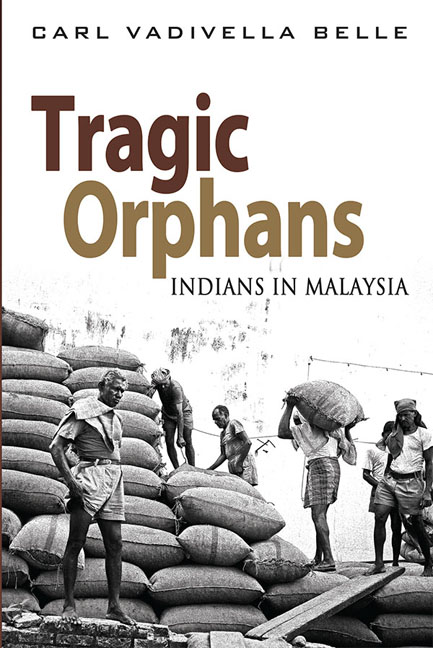Book contents
- Frontmatter
- Contents
- Acknowledgements
- List of Abbreviations
- Introduction
- 1 The Malay Peninsula: Early History, Melaka and the Colonial Setting
- 2 European Colonialism and the Malay Peninsula
- 3 India and the Development of British Ideologies of Empire
- 4 British Governance of Malaya
- 5 Slavery and Indentured Labour
- 6 Indian Indentured Labour in Malaya
- 7 Kangany Labour in Malaya
- 8 Other Indian Immigration
- 9 Indian Political Development to 1941
- 10 The Japanese Invasion, Subhas Chandra Bose and Indian Wartime Nationalism
- 11 The Post–war Period: Reform and Repression: 1945–48
- 12 From Federation to Merdeka
- 13 From Malaya to Malaysia: Singapore, 13 May and the New Economic Policy
- 14 The Mahathir Years: A Changing Malaysian Landscape
- 15 Abdullah Badawi, Islamization, and the Rise of Hindraf
- 16 Najib and 1Malaysia: A New Deal?
- Conclusions
- Bibliography
- Index
4 - British Governance of Malaya
Published online by Cambridge University Press: 06 June 2017
- Frontmatter
- Contents
- Acknowledgements
- List of Abbreviations
- Introduction
- 1 The Malay Peninsula: Early History, Melaka and the Colonial Setting
- 2 European Colonialism and the Malay Peninsula
- 3 India and the Development of British Ideologies of Empire
- 4 British Governance of Malaya
- 5 Slavery and Indentured Labour
- 6 Indian Indentured Labour in Malaya
- 7 Kangany Labour in Malaya
- 8 Other Indian Immigration
- 9 Indian Political Development to 1941
- 10 The Japanese Invasion, Subhas Chandra Bose and Indian Wartime Nationalism
- 11 The Post–war Period: Reform and Repression: 1945–48
- 12 From Federation to Merdeka
- 13 From Malaya to Malaysia: Singapore, 13 May and the New Economic Policy
- 14 The Mahathir Years: A Changing Malaysian Landscape
- 15 Abdullah Badawi, Islamization, and the Rise of Hindraf
- 16 Najib and 1Malaysia: A New Deal?
- Conclusions
- Bibliography
- Index
Summary
This chapter will explore how the ideologies of rule developed in British India, namely British prestige; indirect rule; incorporation of elites into the formal structures of administration; and racial ideologies built around the principles of Social Darwinism and the tenets of Victorian anthropology, were reproduced within colonial Malaya.
PRESTIGE
As with other parts of the Empire, British society was shaped by the doctrine of prestige. This manifested as an inherent sense of superiority characterized by aloofness and social distance from the subject population. The British adopted a number of strategies to emphasize their difference in racial terms from those they ruled. The most obvious of these were levels of income and patterns of consumption. The Governor and Residents of the Federated Malay States (FMS) and Unfederated Malay States (UFMS) were representatives of the British sovereign and as such lived in a style which was intended to reflect the majesty and dignity of the Crown. High officials occupied grand residences and were served by numerous officials and full households of servants. But even among lower ranks, the British administration took every precaution to ensure that “white” prestige was not challenged. Salaries and wages, including those of the lowest paid workers, were fixed at rates which ensured that even working class Europeans could enjoy, and more importantly be seen to enjoy, a standard of living conspicuously higher and largely unattainable by all but a handful of the Asian population.
While, in general, anything less than total acquiescence to British rule was viewed by the administration as rank insubordination, the imposition of a strict racial hierarchy in colonial Malaya was nowhere near as inflexible or absolute as it had become in the British Raj. There were elites among all communities, most particularly the Malay aristocracy and the Chinese business classes, whose sensitivities had to be taken into account, and who would effectively resist any attempts by Europeans to introduce complete racial segregation. Thus, the establishment of whites-only compartments within the Malayan railways, begun in 1904, was withdrawn in 1915 against a background of Asian resentment, having in the interim caused great offence to the Chinese population.
- Type
- Chapter
- Information
- Tragic OrphansIndians in Malaysia, pp. 46 - 62Publisher: ISEAS–Yusof Ishak InstitutePrint publication year: 2014



